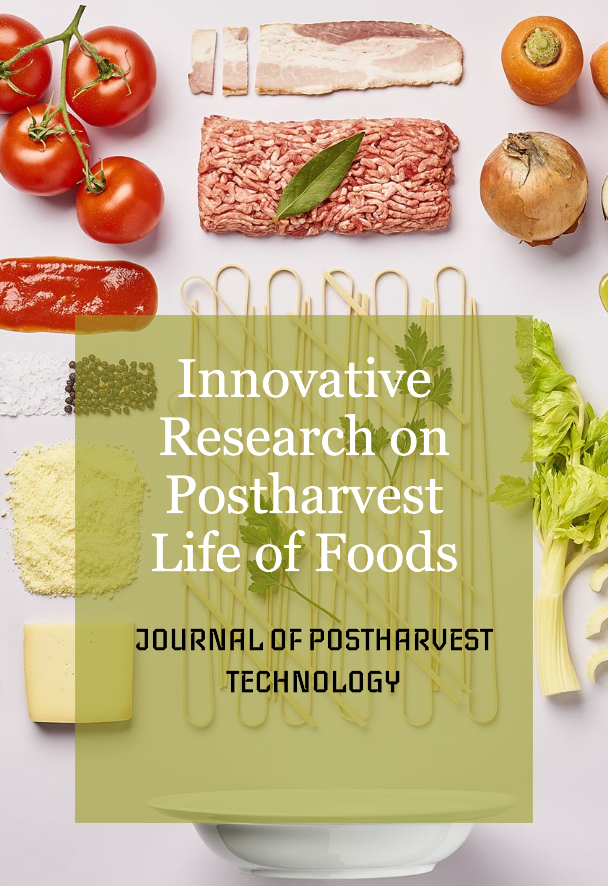Mango value chain in Trinidad and Tobago,Guyana and St. Lucia: Measuring and reducing post-harvest losses
Keywords:
Post-harvest losses, enzymatic browning, physiological disorders, ripening, maturation harvest losses, enzymatic browning physiological disorders, ripeningmaturationAbstract
Measurements of post-harvest losses of fresh mango fruits and processed mango products were conducted after screening the value chains harvest losses of fresh mango fruits and processed mango products were conducted after screening the value chains harvest losses of fresh mango fruits and processed mango products were conducted after screening the value chains in Trinidad and Tobago, Guyana and St. Lucia. Based on the critical loss points (CLPs) where losses had the highest magnitude, the highest in Trinidad and Tobago, Guyana and St. Lucia. Based on the critical loss points (CLPs) where losses had the highest magni in Trinidad and Tobago, Guyana and St. Lucia. Based on the critical loss points (CLPs) where losses had the highest magni impact on food security, and the highest effect on the economic result of the food supply chain (FSC), appropriate solutions were impact on food security, and the highest effect on the economic result of the food supply chain (FSC), appropriate solutions impact on food security, and the highest effect on the economic result of the food supply chain (FSC), appropriate solutions recommended to optimize the system to reduce losses. The CLPs for fresh table ripe mangoes were similar in Trinidad and Tobago and recommended to optimize the system to reduce losses. The CLPs for fresh table ripe mangoes were similar in T recommended to optimize the system to reduce losses. The CLPs for fresh table ripe mangoes were similar in T Guyana, with at harvest as CLP#1 and retail markets as CLP#4. For St. Lucia the CLPs identified for fresh mango fruits wholesaled to the Guyana, with at harvest as CLP#1 and retail markets as CLP#4. For St. Lucia the CLPs identified for fresh mango fruits wholes Guyana, with at harvest as CLP#1 and retail markets as CLP#4. For St. Lucia the CLPs identified for fresh mango fruits wholes
References
FAO Brecht, J. K. 2010. Mango post-harvest best management practices manual. University of Florida IFAS Extension, 58pp FAOSTAT 2013. Crop production data for the Caribbean region for 2011
Kader, A. A. 2008. Mangoes recommendations for maintaining post-harvest quality. In: Fruit Ripening and Ethylene Management. 50-51. Univ. Calif. Post-harvest Technology Research and Information Center Publication Series #9.
Kader, A, A. and Mitcham, B. 2008. Optimum procedures for ripening mangoes. In: Fruit Ripening and Ethylene Management. 50-51. Univ. Calif. Post-harvest Technology Research and Information Center Publication Series #9.
Mohammed, M. and Brecht, J. K. 2000. Influence of ethylene treatments on ripening and chilling injury alleviation in mango (cv. Palmer) fruit. Acta Horticulturae, 509(1): 437-447..
Mohammed, M. 2015. Post-harvest logistics management: Case study on Mango. In: Sustainable Food Production. Practices (Eds. W. Ganpat and W. Isaac), Chapter 8, Vol. 2: 243-262.
Mohammed, M and Brecht, J. K. 2002. Reduction of chilling injury in ‘Tommy Atkin mangoes during ripening. Scientia Horticulturae 95 (4), 297- 308
Rehman, A., Malik, A. U., Ali, H., Alam, M. W. and Safraz, B. 2016. Preharvest factors influencing the post-harvest disease development and fruit quality of mango. Journal of Environmental and Agricultural Science, 3, 42-47.
Sherman, M., Kasmire, R. F., Schuler, K. D. and Botts, D. A. 1982. Effect of pre-cooling and peduncle lengths on soft rot decay of bell peppers. HortScience, 46: 511-516.
Shukla, R. P and Tandon, P. L. 1985. Bio-ecology and management of the mango weevil, Sternochetus mangiferae (Fabricius) (Coleoptera Curculionidae). International Journal Tropical Agriculture. 3: 293-303.
Singh, Z., Singh, R. K., Sane, V. A. and Nath, P. 2013. Mango: Post-harvest biology and biotechnology, Critical Reviews in Plant Science, Post-harvest Biology and Biotechnology, 32: 4, 217-236.
Wickham, L. D. and Mohammed, M. 1999. Storage of immature green mango (Mangifera indica, L.) fruit for processing. Journal of Food Quality 22(1): 31 – 40.
Yahia, E. M. 2011. Mango. In: (ed. E.M. Yahia), Post-harvest Biology and Technology of Tropical and Subtropical Fruits, Vol. (3): 492-550.




